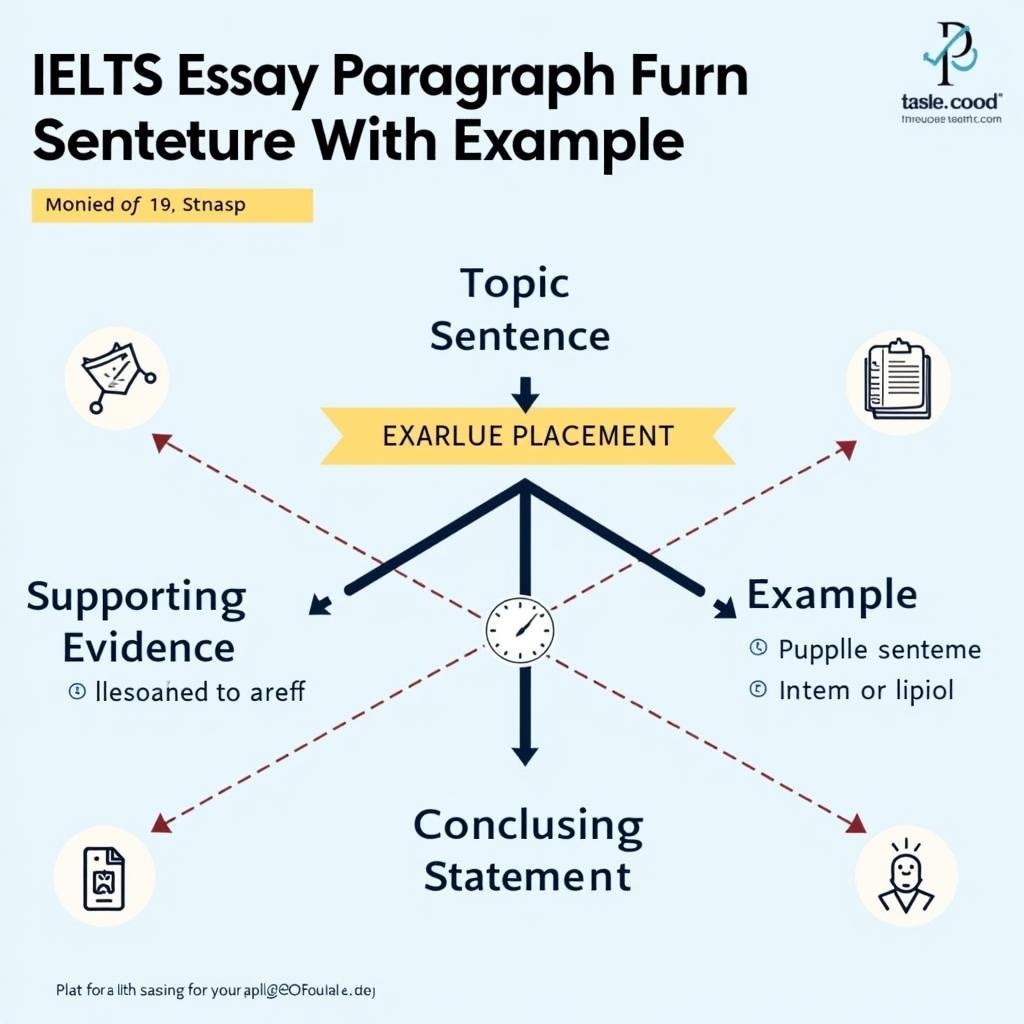Writing effective examples in IELTS essays can significantly boost your band score by demonstrating your ability to support arguments with relevant evidence. This comprehensive guide will show you how to select, structure, and integrate examples that make your essays more convincing and help you achieve a higher score.
Understanding the Role of Examples in IELTS Writing
Examples serve as concrete evidence that strengthens your arguments and demonstrates your ability to connect abstract ideas to real-world situations. As highlighted in our guide about how to structure IELTS task 2 essays, well-chosen examples can make the difference between an average and an exceptional essay.

Types of Examples to Use in IELTS Essays
- Personal Experiences
- Real-life situations you’ve encountered
- Observations from your daily life
- Lessons learned from past experiences
- Statistical Data
- Recent research findings
- Numerical evidence
- Survey results
- Historical Events
- Well-known historical occurrences
- Significant developments in society
- Cultural changes over time
Techniques for Incorporating Examples
When incorporating examples, it’s essential to maintain smooth transitions, similar to using linking words for better flow. Here are key techniques:
- The PEEL Method:
- Point: State your main argument
- Evidence: Provide supporting evidence
- Example: Include a relevant example
- Link: Connect back to the main argument
Common Mistakes to Avoid
While learning to use examples effectively, be mindful of these common errors outlined in our guide about avoiding common writing mistakes:
- Irrelevant Examples
- Using examples that don’t directly support your argument
- Including outdated or incorrect information
- Providing examples that are too personal or informal
- Poor Integration
- Abruptly inserting examples without proper introduction
- Failing to explain the connection to your argument
- Not providing enough context
Best Practices for Example Selection
To ensure your examples have maximum impact, consider these guidelines:
- Relevance
- Choose examples that directly support your point
- Ensure examples are culturally appropriate
- Use contemporary examples when possible
- Specificity
- Include precise details
- Use actual numbers and dates when available
- Name specific locations or entities
Just as using synonyms to avoid repetition helps maintain variety in your writing, varying your example types keeps your essay engaging.
Structuring Examples in Different Essay Types
Advantage/Disadvantage Essays
- Use contrasting examples to illustrate both sides
- Provide balanced evidence for each perspective
- Connect examples to specific benefits or drawbacks
Discussion Essays
- Present examples supporting multiple viewpoints
- Use comparative examples to analyze different aspects
- Include examples that show cause-and-effect relationships
Conclusion
Mastering the art of using examples effectively in IELTS essays requires practice and careful consideration. By following these guidelines and consistently applying them in your writing practice, you’ll develop the skills needed to use examples that enhance your arguments and improve your overall band score.
FAQ
Q: How many examples should I use in each body paragraph?
A: Generally, one well-developed example per body paragraph is sufficient. Quality matters more than quantity.
Q: Should I memorize examples before the test?
A: Rather than memorizing specific examples, develop a broad knowledge base that you can adapt to different topics.
Q: Can I use hypothetical examples?
A: While real examples are preferred, hypothetical examples can work if they’re logical and well-explained.
Q: How detailed should my examples be?
A: Examples should be specific enough to support your point but concise enough to fit within the word limit.
Q: What if I can’t think of a perfect example?
A: Use the best example you can think of and focus on explaining its relevance to your argument clearly.